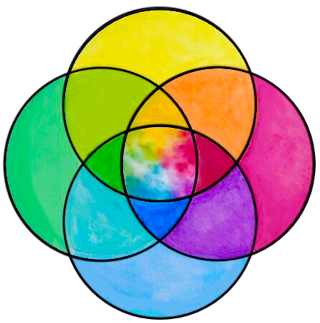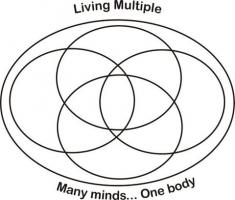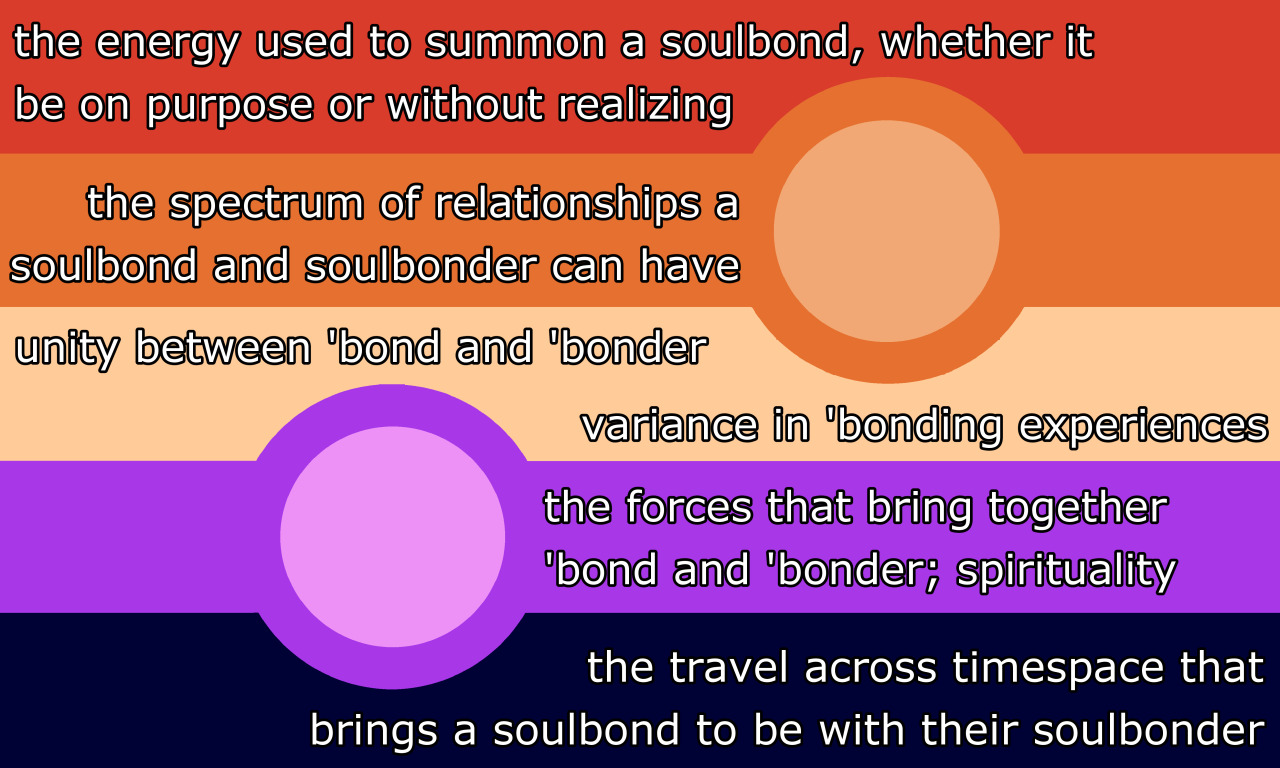A plural system is multiple people in a body. Different people might be able to take control of the body, or "front" at different times. It can present in many, many different ways, and there's a lot of subcommunities connected to plurality as a concept!
 Plural FAQ!
Plural FAQ!

Frequently asked questions about plurality! Click the questions to view the answers.
Identity-Specific FAQs
To keep the alterhuman FAQ page anything but miles long, FAQ pages for specific subsections of alterhumanity exist independently of the main one. You can find these below!
- Alterhuman FAQs -- The homepage for the FAQs, with general alterhuman stuff.
- Otherkin FAQs -- Otherkinity, therianthropy, phytanthropy, etc.
- Otherlink FAQs -- Otherlinking, copinglinking, etc.
- Otherhearted FAQs -- Otherheartedness, hearthomes, etc.
- Plural FAQs -- Plurality, tulpas, soulbonds, etc.
- Fictionfolk FAQs -- Fictional identities.
- Factfolk FAQs -- Factbased identities.
- Other Alterhuman FAQs -- Anything that doesn't fit anywhere else.
What is a plural system/plurality?
What are some plural symbols?
General Plurality

The ampersand. Commonly used as a symbol to represent plurality as a whole, in use since 2003.

The Treblesand, another commonly used symbol for plurality. Proposed in 2020.

The plural rings, another widespread plurality symbol. Used in many different forms since at least 2011.

Emmengard's plural rings, created with the unknown/adaptive/created/spontaneous terms in mind in 2019.

The plural pride symbol, an early iteration of the plural rings. Created in 2011, created for the Plural Activism Yahoo group.
Below are more symbols, specific to subcommunities within the plurality umbrella.
Daemonism

The latin character, æ. Commonly used as a symbol of daemonism, as "daemon" is normally typed as "dæmon". (On this site, it is typed without the character for now to reduce workload and screenreader issues.) Daemonpage link.
Soulbonding

A soulbonding symbol. Proposed in this thread in 2016.

An alternative soulbonding symbol. Proposed in 2024 by lunar-solstice-plur on Tumblr.

Proposed in 2024 by lunar-solstice-plur on Tumblr. This version is specific to those who are in soulbond-soulbonder relationships/those who date their soulbonds.

A soulbonding flag. Note that this flag was previously specifically created for metaphysical soulbonders only, but has since been expanded to include the full definition of soulbonding, as opposed to being exclusive. Created in 2020 by vesiamor on Tumblr.

The same flag as the previous one, with meanings attached. Created in 2020 by vesiamor on Tumblr.
Tulpamancy

A tulpamancy symbol. Suggested in this thread on the r/tulpas subreddit in 2014, and is now used as the subreddit icon.
Why does someone become a system?
A system can form for many reasons. Systems might form involuntarily, or someone may have chosen to become plural--maybe even a mix of both! Each system may have a different explanation for why/how they're plural, or may have a mixture of different origins of plurality within their system.
Some plurals are simply born as a system and grow up that way. This could have spiritual explanations (such as being born with multiple souls), or have psychological explanations (brain is simply different), though this experience isn't exclusively defined by a spitirual vs psychological framework.
Walk-ins are headmates that simply show up randomly. Some explain these as extra souls joining the body to create a system, and some explain them as a psychological thing that is yet to be explored.
Thoughtforms and certain types of them (tulpas, daemons) are another way one can become plural. Thoughforms are usually deliberately created in order to become plural. One type of thoughtform is a tulpa, a headmate one makes through psychological methods. You can find guides on how to create a tulpa in places such as r/tulpas or tulpa.info--they have more in-depth info! Daemons are a type of mental construct usually meant to serve as a separate part of your consciousness, your subconscious, or something similar to that. A lot of people who make daemons don't consider themselves plural as daemons are supposed to be a representation of yourself, but still distinctly you. This is, of course, up to the individual(s) as to if they call themselves plural or not.
Dissociative Identity Disorder (formerly known as Multiple Personality Disorder) is one of the main studied causes of plurality. It's a dissociative disorder that involves the presence of more than one identity within a singular body, dissociation (usually severe), and amnesia. It's commonly thought of to be associated with trauma. OSDD (Other Specified Dissociative Disorder) is another disorder that may be related to plurality. Dissociative disorders aren't the only disorders to be related to the plural experience, but are the ones most commonly associated with it. Some psychotic people consider their hallucinations to be a plural experience, as do some people with personality disorders with their identity related symptoms.
Soulbonding is a usually deliberate mental connection with a (usually) external entity--usually a fictional character, but not always. This has both spiritual and psychological explanations to it. Spiritual soulbonders tend to believe in the multiverse theory and that they are connecting with entities outside of their brain in other universes--entities who may be able to share their body with them as a headmate. Psychological soulbonders are similar in that they connect with an entity, but this is usually more explained to be similar to the phenomenon of writers having the story "escape" from them, and having the characters from their stories "correct" and change the plot. This is similar to a tulpa, but the communities arose separately and have their nuances.
How do I act around a system?
The same way you'd act around any other person, honestly! Treat them however they want to be treated. Treat them and any boundaries they may have--related to their plurality or not--with respect. Don't pester them about their system if they don't want to share certain details with you, let them explain things in their own time. Though, they might not ever explain everything to you, and that's okay--it's their identity and it can be very private.
Also remember that regardless of what a systemmate is or identifies as, don't treat them any differently than you would a normal person unless the system themselves has specified they'd like to be treated in a certain other way. Even if they're a fictional character, they're a living being and deserve to be treated with respect.
Some general pointers, though, to get you started with establishing yourself as a good friend to a system:
- Ask them if they'd like to tell you who's fronting, or if they'd prefer you ask them whenever you meet up.
- Ask a little bit about their headmates, if they're open to it! Ask for hobbies, things they enjoy doing, favourite foods, etc. Any regular get-to-know-you questions.
- Check if there's any boundaries that the system has that you'd need to be aware of to avoid crossing.
Can headmates be diferent ages/genders/sexualities/species/etc?
Yes, and they often are. Headmates can be different ages, genders, have different orientations and even be a completely different species from the body. They can also be fictional characters, mythical creatures and essentially anything else! Remember that just because their body may be one thing, the headmate in question may be something completely different, and their identity should be respected as any other persons would.
What do "multiple" and "median" mean? Don't they mean the same as plural?
"Multiple" and "median" are both terms included under the plural umbrella.
Singlet: The state of being one singular person/identity in one body. Synonym for non-plural.
Plural: More than one entity, self, identity or consciousness in a single body. Simply, being more-than-one in some way. This is more of an umbrella term for multiple and median.
Multiple: The state of having more than one distinct identities or people within a body.
Median: The state of being somewhere between "singlet" and "multiple" on the plural spectrum.
Being median is any experience that falls somewhere between multiple and singlet, and it's such a diverse experience! We recommend checking out our "You Could Be Median" post for more information on the median experience!
How do I know if I'm plural?
Instead of us rewriting an amazing resource, we're going to link you to The Dragonheart Collective's "Am I Plural?" PDF!
Can I become plural?
Yes, and plenty of people do choose to become plural! But it's highly recommended that you do a lot of research on systems and system experiences before you make one. Systems are generally lifelong commitments. Before you make a system, you need to realize that you will be sharing your body with one or more individuals for what is likely to be forever. System members are people and they have needs--if you're not ready to fulfil those potential needs, you're probably not ready to be a system.
Some things to consider:
- Your privacy -- You'll be sharing your brain and body with someone else, full time. 24/7, for the forseeable future. It's possible that you won't be able to get direct privacy from your headmate, even from your own memories. Is this a dealbreaker? What boundaries could you set in place to make it seem easier?
- Body sharing/sharing the front. Not all headmates desire to control the body and/or switch, but this is another possibility you need to consider. They may want to share the body 50/50 with you, effectively taking up half of your time. Would this be alright? How would you schedule fronts? How would you manage your responsibilities and theirs?
- The possibility that your headmate might make or bring in another system member, or more. If they don't do it on their own accord, they might discuss this with you as a thing they'd like--we've known several systems who had just a host and a headmate, and that headmate got lonely and wanted more system members. How would you decide what to do?
- A potential systemmates wants and desires. They might have different hobbies, different favourite foods, different desired careers--could you come to a compromise about these things, if they arise and cause tension?
- The potential for a systemmate to be different from what you expected. When making a tulpa or headmate from scratch, there's a huge chance they'll deviate from your blueprint. This isn't a bad thing, and shows that they have individual personhood! But you need to be aware it can happen--they're a person, not under your control.
- The possibility for a systemmate to not like you. Sometimes, things happen. Maybe an argument causes a rift, or maybe you just don't vibe. How will you manage this while still ensuring they have quality of life?
Isn't this just schizophrenia/psychosis?
Schizophrenia is a disorder with its own diagnostic criteria, centering around disorganisation of thoughts, delusions, and hallucinations. While to some it may look like plurality is simply a hallucination or delusion, it's largely considered a separate experience. Dissociative Identity Disorder, for instance, is an entirely separate disorder and one of the many presentations of plurality that are possible, and isn't linked with schizophrenia or psychosis at all--not to mention things like soulbonding, tulpas, and daemonism which are largely nondisordered and also laregly considered unrelated to psychosis.
However, the line between hallucination and heamate may be blurry to some systems, and they may consider themselves a system based on/directly due to their psychotic symptoms. If you have the experience of being more than one, after all, then what other proof do you need? You have as much proof of your plurality as anyone else--having psychosis doesn't change that fact. Being schizophrenic or psychotic doesn't bar you from being plural or taking part in the plural community--whether psychosis caused your system or not.
What are fictives and factives?
A fictive (also called fictional introject) is a member of a system who is based on and usually identifies as a fictional character. Similarly, a factive (also called an introject) is a member of a system who is based on and usually identifies as an existing person from this world.
Fictives and factives are actually pretty well documented in DID/OSDD systems, medically! There's a few research papers citing systems who have headmates from sources such as Lord of the Rings, among other sources. This is by no means a new phenomenon. Here's one of the mentioned papers!
Why do systems have fictives/factives/nonhuman headmates?
They can end up in systems for a variety of reasons. They can form due to their source being a comfort show/book/etc, they can form due to hyperfixations/special interests and they can form from trauma, they could be deliberately created because their source is liked, or they could just.. Show up for no reason, to name a few things. Fictives, factives and nonhuman system members can have very diverse origins, just like brainmade system members.
How many fictives/factives/nonhumans can a system have?
There’s no real limit to how many a system can have. Systems can range from having only one or two to having 50 or more, even into the 100s. Sourced headmates can even make up 100% of a system's members! It all depends on system size and how their system works. Having many fictives, factives or nonhumans would be called being fictive-heavy, factive-heavy or nonhuman-heavy respectively.
How do I treat fictives/factives?
Don’t assume they want to be treated in any particular way, even if you know their source. Certainly don’t treat them like they’re famous, or infamous--you don't know this individual personally yet, no matter how well versed you are in their source material. Don’t speak about their source life like you know what happened to them or what they did in their memories, and don’t bring up anything that could have been stressful to them from their source. Chances are if you go up to a fictive/factive and treat them just like their source, they’ll be creeped out. They’re a person, just like you, with thoughts and feelings. You haven’t met them yet, so get to know them as a person and see what they personally like and dislike! Treat them like they’re just another person until they ask you otherwise.
If a headmate's source is problematic (whatever that means to you), don't blame the headmate for their sources actions, either. You don't know that headmate as a person, and you don't know what they have or haven't done--both in their memories and in this lifetime/body. Their opinions may differ from source, their actions might be wildly different, and even if not? Things that your source did aren't always a reflection of how you're going to act.
Some headmates love being treated exactly like their source, and that's okay! But as with any other person, you shouldn't assume you can treat them in that way--always ask first! For a majority of fictives/factives, it feels very parasocial to be treated like some celebrity.
Aren't fictives/factives copyright infringement/identity theft?
A person saying they identify as a fictional character is not copywright infringement. They're taking nothing from the creator of the source or the media by existing as themselves online or in the physical world. A person identifying as another past or present person might be a little trickier, but identity theft largely refers to the criminal act of using a persons information to commit fraud or other crimes--which factives are not doing by simply stating that they are a factive.